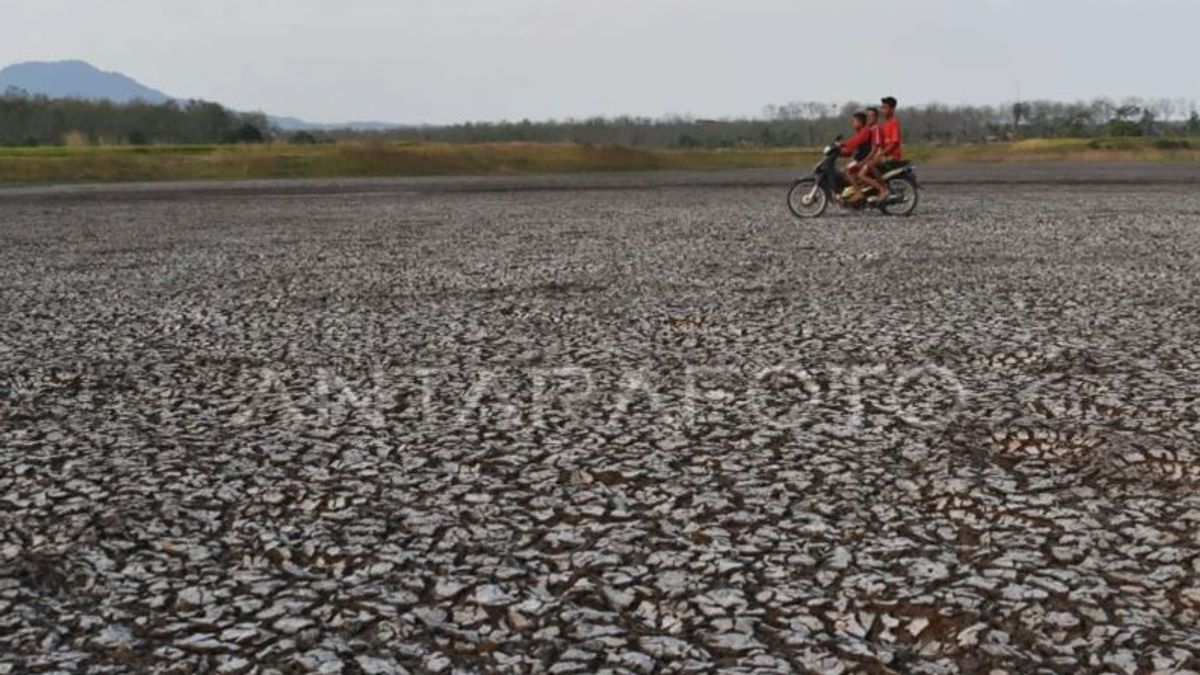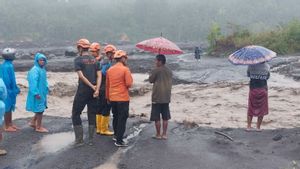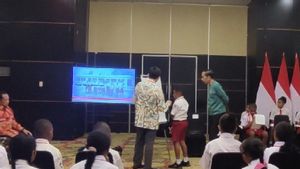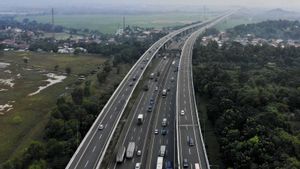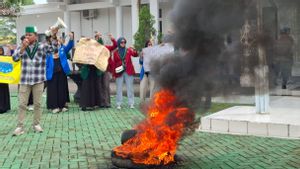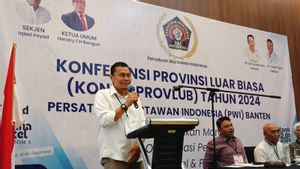JAKARTA - The Meteorology, Climatology and Geophysics Agency (BMKG) seeks to strengthen climate literacy and weather for farmers to deal with a climate crisis that threatens Indonesia's food security.
Head of BMKG Dwikorita Karnawati said the effort was not only made in terms of technology, but also in terms of human resources (HR) which continued to be upgraded according to increasingly complex demands and needs.
The data and information issued by BMKG is not only needed for natural disaster management, but also for health, construction, mining energy, forestry agriculture, spatial planning, industry, tourism, transportation, security defense, water resources, and marine fisheries.
"Especially in the agricultural sector, BMKG continues to strengthen climate literacy and weather for farmers and agricultural instructors as a mitigation measure and adaptation of climate change. Climate field schools (SLI) continue to be held throughout Indonesia by targeting various agricultural superior commodities," said Dwikorita as reported by ANTARA, Friday, July 7.
Dwikorita added that information on the latest climate conditions from the BMKG had been used as one of the references or considerations for decision-making and recommendations in the national food security monitoring system.
The data and information are in the form of global climate anomalies, climate conditions monitoring, and climate predictions.
"This information can be used as an initial reference to determine the status of national food security. Whether it is in the safe, alert, alert, or alert category," he said.
SEE ALSO:
Dwikorita said that if there is no policy intervention, the potential economic loss in Indonesia (2020-2024) will reach IDR 544 trillion due to the impact of climate change.
Therefore, climate resilience policies are one of the priorities considered to be able to avoid potential economic losses of IDR 281.9 trillion by 2024.
"In the RPJMN, BMKG is given a mandate to support improving environmental quality and increasing disaster and climate resilience. This is very important because based on calculations from the Ministry of Finance, economic losses due to disasters are estimated to reach an average of IDR 22.8 trillion per year," he said.
The English, Chinese, Japanese, Arabic, and French versions are automatically generated by the AI. So there may still be inaccuracies in translating, please always see Indonesian as our main language. (system supported by DigitalSiber.id)
